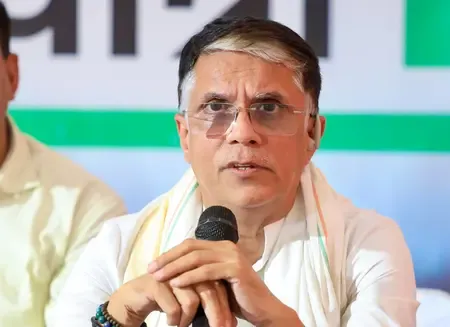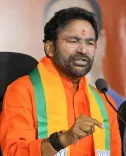Did Laws Made Without Discussion Force Apex Court to Intervene?

Synopsis
Key Takeaways
- Supreme Court intervenes to halt provisions of Waqf (Amendment) Act, 2025.
- Congress leaders stress need for legislative discussion.
- Separation of powers principle upheld by the Court.
- No third-party rights over Waqf properties until final adjudication.
- Political reactions reflect broader governance concerns.
New Delhi, Sep 15 (NationPress) Political reactions surged across party lines on Monday after the Supreme Court temporarily halted crucial provisions of the Waqf (Amendment) Act, 2025. Congress leader Pawan Khera emphasized that laws enacted without adequate discussion inevitably compel the court to step in and ensure justice.
A Bench featuring Chief Justice of India B.R. Gavai and Justice A.G. Masih suspended the requirement of a five-year practice of Islam for establishing Waqf, pending the formulation of rules.
The court also paused the provision that allowed a designated official to determine if a Waqf property had encroached upon government land, noting that permitting an executive officer to rule on property rights would violate the principle of separation of powers.
Reacting strongly, Congress leader Pawan Khera stated that the decision illustrated the repercussions of ignoring democratic legislative processes.
“Clearly, such a scenario should not have occurred. When laws are created without discussion, it ultimately prompts the Supreme Court to intervene and provide relief. This is not an isolated incident. Over the past decade, there have been numerous instances where the SC has had to step in to administer justice. Any government that enacts laws without dialogue will encounter this issue,” he remarked.
Congress MP Imran Pratapgarhi, one of the case petitioners, expressed his contentment with the ruling, stating, “As petitioners, we are pleased. However, how can the government be satisfied? A significant aspect of the government's scheme has been thwarted, and if the government still claims happiness, it is merely stubbornness.”
Conversely, BJP leader Mohsin Raza defended the government's actions and welcomed the Court's judgment.
“We embrace the Supreme Court's decision, and the Waqf (Amendment) Act, 2025, introduced by our Modi government, serves the public interest and the nation,” he asserted.
UP Minister Om Prakash Rajbhar also supported the court’s rationale.
“There are six religions within the minority community, and they possess rights. Women make up half the population, and their involvement should also be reflected in the committee. The Supreme Court's stance is completely justified,” Rajbhar commented.
Furthermore, the Supreme Court ruled that no third-party rights can be established over Waqf properties until a final determination is made by the Waqf Tribunal.










